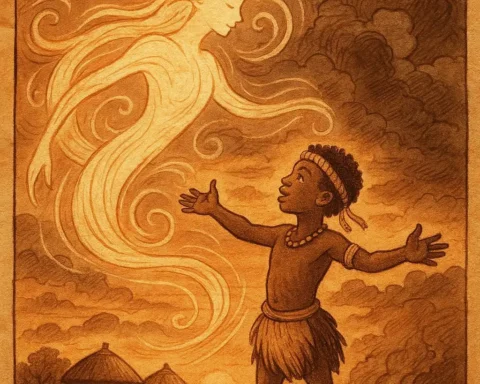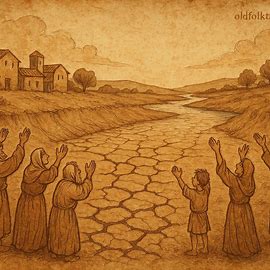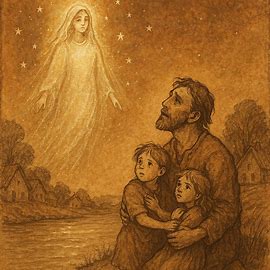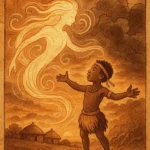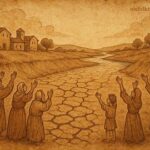Long ago, when the world was still young and only a few humans roamed the earth, wild animals ruled the land. Each beast claimed dominion over its territory, and even men lived without order. To bring peace and structure, the people created chieftainship, and over all chiefs, they appointed the great Chief Mukuru.
Chief Mukuru was blessed with only one child, a daughter so radiant that no maiden could rival her beauty. As the years passed, she blossomed into a woman of breathtaking grace and charm. Her beauty was matched by her dignity: she spoke little, smiled rarely, and appeared sparingly before others. Yet every movement, every glance of hers, deepened the desire of young men across the land. Many longed for her, but she remained distant, guarded, and her father grew increasingly protective of her.
When suitors pressed for her hand, Chief Mukuru declared that his daughter would only marry the wisest of men. But despite his waiting, no youth proved worthy, and the princess grew beyond the age most maidens wed. At last, the chief issued a proclamation across the land: “He who wishes to marry my daughter must bring meat from an animal that is neither male nor female.”
The challenge left everyone baffled. People whispered among themselves: “Is there such an animal? Or has the chief grown mad with age?” Hope for the princess seemed lost.
On a nearby hill lived a man called Mhala, known across the land as a fool. He laughed without reason, wept for nothing, and often rolled down the hillside in fits. He ate only when no food was present, feared rats but challenged lions, and blamed others, even the chief, for his misfortunes. To all, he was the most foolish man ever born.
When children carried the news of the chief’s proclamation to Mhala, they expected only amusement. But the fool leapt to his feet and declared, “Now the princess is mine, and of nobody else!” People laughed at his absurdity, but he repeated it to everyone he met.
READ: Were You My Father?: A Zambian Folktale of Betrayal and Justice
Mhala, however, remembered a wounded animal he once encountered. The creature, injured beyond repair, had lost its male organ, yet lived on. To him, it seemed neither male nor female. Seizing upon this, he set off with his bow and arrows.
“Where are you going, Mhala?” villagers asked mockingly.
“In search of the animal that is neither male nor female. The princess is mine and of nobody else,” he replied.
To their astonishment, Mhala returned dragging the very creature. He had slain it and carried it straight to Chief Mukuru’s kraal, shouting, “Now the princess is mine, and of nobody else!”
The people gathered, and the chief’s messengers verified his claim. The crowd murmured, “Foolish though he is, the chief must keep his word.”
Yet Chief Mukuru was not ready to part with his beloved daughter. He sent another message: “The father of the princess cannot meet the suitor unless he greets him at a time that is neither day nor night.”
The crowd sighed, surely this was impossible. But Mhala only laughed louder. At twilight, when the sun dipped below the horizon and night had not yet fallen, he cried out: “Chief Mukuru, my father-in-law! Come now, for it is neither day nor night. The princess is mine, and of nobody else!”
The test was met, but still the chief resisted. He issued a final challenge: “I will meet the suitor only if he greets me at a place that is neither inside nor outside my home.”
The villagers grumbled, suspecting their chief of dishonesty. But Mhala strode to the threshold of Mukuru’s kraal, planted one foot inside and the other out, and bowed. “Here I stand, neither inside nor outside your home. You have tried me enough. The princess is mine, and of nobody else!”
The people erupted in cheers. “Give her to the man who has proven himself the cleverest of all!” they demanded. Drums beat, feet danced, and the air rang with song. Surrounded by his jubilant subjects, Chief Mukuru could no longer deny the truth. Though once branded a fool, Mhala had proven his wit surpassed all others.
Thus, the beautiful princess was married to the wisest fool of all, and together they began a new life destined to rule.
Moral Lesson
This folktale teaches that wisdom does not always wear a noble face. What seems foolish to many may conceal unexpected cleverness. True intelligence lies not in appearances but in the ability to think differently, to perceive possibilities where others see only impossibility. Above all, it reminds us that determination, persistence, and confidence can transform even the least expected person into a figure of greatness.
Knowledge Check
Q1: Who was Chief Mukuru?
A1: Chief Mukuru was the supreme leader chosen above all other chiefs to bring order among people.
Q2: Why did Chief Mukuru struggle to marry off his daughter?
A2: He sought only the wisest man for her, but no one proved worthy until Mhala.
Q3: What unusual condition did Chief Mukuru set for suitors?
A3: They had to bring meat from an animal that was neither male nor female.
Q4: How did Mhala prove his worth despite being called a fool?
A4: He fulfilled every challenge, finding the animal, greeting at twilight, and standing at the threshold.
Q5: What lesson does the story emphasize about intelligence?
A5: True wisdom can come from unexpected places, even from those considered foolish.
Q6: What cultural origin does this folktale belong to?
A6: It is a Bemba folktale from Zambia.
Folktale Origin
Source: Bemba folktales, Folktales of Zambia by Chiman L. Vyas (1969), Zambia


